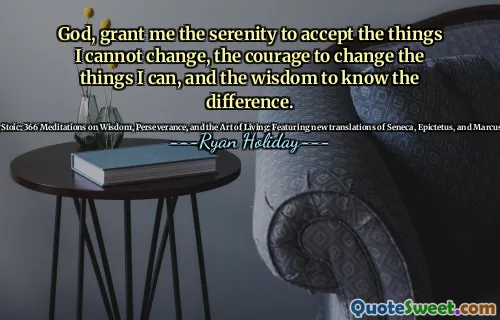Many of the things that upset us, the Stoics believed, are a product of the imagination, not reality. Like dreams, they are vivid and realistic at the time but preposterous once we come out of it. In a dream, we never stop to think and say: "Does this make any sense?" No, we go along with it. The same goes with our flights of anger or fear or other extreme emotions. Getting upset is like continuing the dream while you're awake. The thing that provoked you wasn't real-but your reaction was. And so from the fake comes real consequences. Which is why you need to wake up right now instead of creating a nightmare.
The Stoics believed that many of our emotional troubles stem from our imagination rather than reality. Much like how dreams can feel real while we are experiencing them, our intense feelings of anger or fear might cloud our judgment and lead us to react in ways that are not based on truth. Instead of questioning the validity of our emotional responses, we often accept them without scrutiny, allowing them to dictate our actions.
The core idea is that while the provocations for our emotions may be unfounded, our reactions are very real and can have significant consequences. Therefore, it's crucial to "wake up" from this emotional slumber and reassess our thoughts, ensuring that we are grounded in reality rather than trapped in a cycle of negative imagination.







